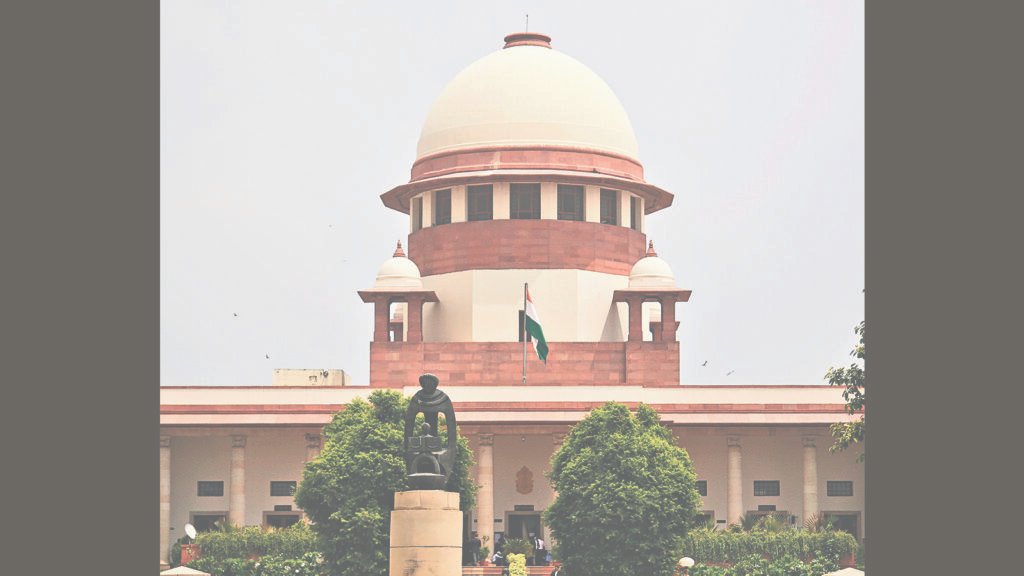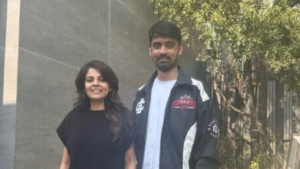
After Uttarakhand Prulgated A Uniform Civil Code (UCC), A Few Other BJP-Ruled States Decided to Follow Suit. Gujarat has set up a committee to draft its code, which hold its first sitting on tuesday. Uttar Pradesh, Madhya Pradesh, and Assam have also also moved for similar laws.

Article 44 of the Constitution, as a Directive Principle, Says that there should be an endevour towards promulgating a UC for All Citizens “Through the Territory of India”. Different Civil Codes in the States are antithetical to the very constitutional idea of ucc. Instead of unifying the citizens of the country under the umbrella of a common code, state-with codes do the opposite. Such a Scenario Can Be Intrinsically Divisive, as a nation with different civil laws in different states was never intended by the framers of the constitution. Thus, State-Wise Uccs are a contradiction in terms.
A mandatory UCC for India has Always a Contested Concept. When km munshi pleaded for it in the constituent assemble, there was stiff opposition from muslim members such as Muhammad Ismail Sahib, Naziruddin Ahmad, Naziruddin Ahmad, Mahboob Alai Bahadur, Bahadur, Bahadur, Bahadur, and Hussain Imam. Br Ambedkar Favoured an optional Civil Code, that would enable the citizens, if they want, to accept a common civil law for the purpose of marriage, inheritance, and another such lif-events.
The Supreme Court (SC) Had only made incidental observations Favouring UCC in Cases Such as Shah Bano Begum (1985), Sarla mudgal (1995), and Shayara Bano (2017), Among others. The court, however, rejected the idea of unilateral imposition of the ucc on the citizens in another clutch of decisions Maharshi avadhesh (1994) and Pannalal Bansilal (1990) Among others. In none of these cases, the question of ucc was directly and substantically the issue. The 21st law commission report that study the topic comprehensively said in its 2018 report that UCC is Neither Necessary Nor Desirable for the Country
The Hurdles to a Common Civil Code for the Nation Are Many. The benefits available by the Hindu undivided familyies (huff) in terms of income tax will be stopped on the law on the subject merges with a unifided code. As it might antagonise many voters, any regime will be unwilling to adopt such a course. The Constitutionally Guaranteed Special Protection to States Such as Nagaland, Manipur, and other Northeastern States will have to be abolished on a uniform code, in the strict sent. Even among the hindus, the laws on inheritance are not uniform. Dayabhaga and Mitakshara Schools Vary from Each other in the case of success and customs. Many Tribes in Several States Follow Indigenous Practices that cannot be brought under a unified law.
This, perhaps, explains why the union government did not even bring forward a draft ucc for the country during the last decade, despite the ruling political friendying an absolute majority. INTEAD, Various BJP-LED STATE GOWENments have Cho ahead with the promulgation of state-with UCCs, which, on the face of it, is Fallacious.
The uttarakhand code has been criticized for meddling with minority rights and personal autonomy. The provisions for compulsory registration of live-in relations and Inquiry INTO Such Relations by the officers of the state are an antithetical to the sc verdicts on the Citizen’s right to Choice His/Her PAROSE HIS The court has cleaned the state’s interventions in intimate personal relations in cases in Lata Singh (2006) and Indra Sarma (2013). The judgment in Indra Sarma Plainly said that, “live-in or marriage-like relationship is neither a crime no a sin though socially unacceptable in this country”. The state’s refusal to see adult citizens as persons with freedom of choos in their relations goes against a pleethora of Judgments by the top court Joseph shine (2018) and Shafeen jahan (2018). Unification of marriage laws in the state resulted not only in impression of the majoritarian practices on minorities but also replaced constitutional morality with conventional morality. The “unified” law bars prohibited-Relations Marriages, How Such Prohibitions Do Not Exist For Certain Minority Communities Such as the Muslims and The Parsis. As per reports, cases have been filled in the uttarakhand high court, challenging the state UCC (Aarushi Gupta v. State of Uttarakhand and others),
There are institutes of uccs in other jurisdictions. Countries like Germany, Italy, Spain, Portugal, and Ireland Tried to Achieve Gender Equality by Promulgating Their UCCS or Other Similar Legal Systems. Egypt and turkey, keen to place personal laws Above Religious practices, designed their ucc according. In france, the object of the UCC was to unify the innumerable local laws. In India, Rather than the constitutional spirit behind article 44, it is the politics of the day that insigts UCC moves. If the present trend Continues, The Country will have different state state laws, which will neiter be uniform norm This is an Indian legal paradox.
Some Personal Laws in India Indeed Violate the Principles of Gender Justice and Equality. It is an area where the sc must step in, as cases challenging Very often, violations of fundamental rights are adequately redressed by adjudication rather than legislation.
Kaleeswaram raj is a lawer at the supreme court of India. The views expressed are personal







